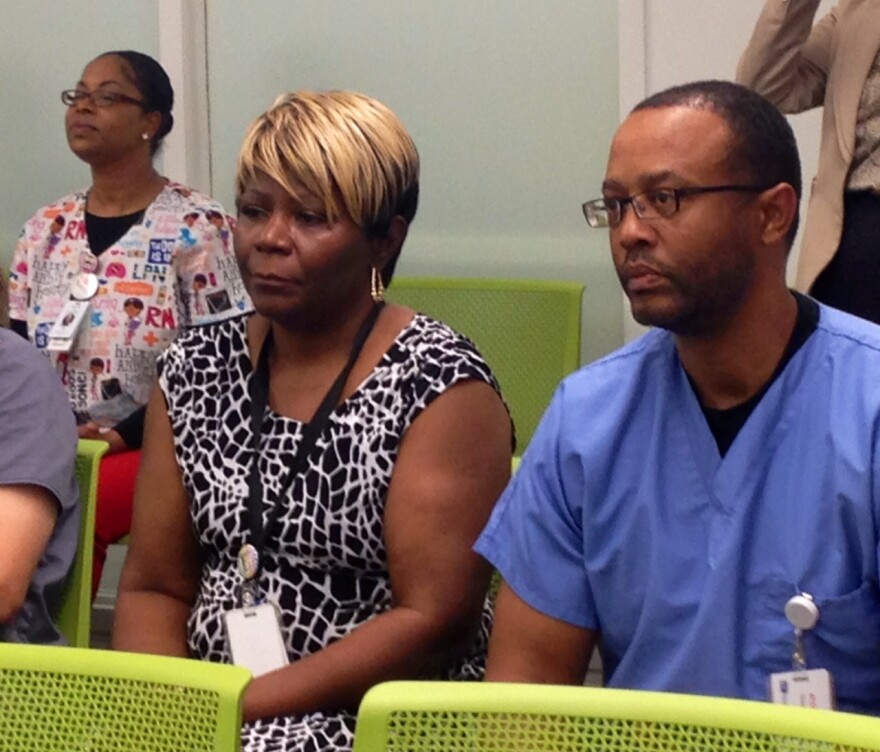Missouri Republican Senator Roy Blunt visited a community health clinic in north St. Louis Thursday and pledged support for the model, which uses federal funds to provide basic healthcare services for people who are uninsured or living in poverty.
The Affordable Care Act included an increase in funding to community health centers over the past five years. Congress has extended the funding for another two years.
“I think [health centers] are a great example of how you meet the needs of a community that otherwise would not have their needs met nearly as effectively,” Blunt said at a press conference held at Affinia Healthcare in north St. Louis.
Affinia, formerly known as Grace Hill Health Centers, operates five clinics that serve about 50,000 patients a year; 96 percent of whom report incomes below the federal poverty line, and more than half are uninsured.
Blunt, a Republican who opposed the Affordable Care Act but has expressed support for some of its provisions, chairs the Senate Appropriations Subcommittee on Labor, Health and Human Services. That committee is in the middle of determining budget appropriations of $1.5 billion for community health centers around the country.
For clinics like Affinia, those appropriations represent 30 percent of its total funding.

“We’ve increased our workforce by about 45 [people] in the past four years,” said Alan Freeman, Affinia’s president and CEO. That’s a 16 percent staffing increase that includes physicians, dentists and nurses.
“We’ve increased the amount of services we provide in four of our locations, and we’ve remodeled two to increase the patient throughput and the amount of service we can provide.”
The four federally-qualified health clinic networks based in the city of St. Louis served a total of 130,000 patients in 2013, and Freeman said he expects that number to continue to grow.
The coming months could be rocky for the health care system: a Supreme Court ruling over the legality of giving income-based subsidies to eight million people who bought health insurance on Healthcare.gov is due in June. If people who purchased insurance there can no longer afford it, their next stop may be community health clinics like Affinia.
“They will go above and beyond to serve maximum amount of folks they can with the staff and the space they have. But they couldn’t begin to pick up eight million people,” said Dan Hawkins, who heads Public Policy and Research for the National Association of Community Health Centers.


